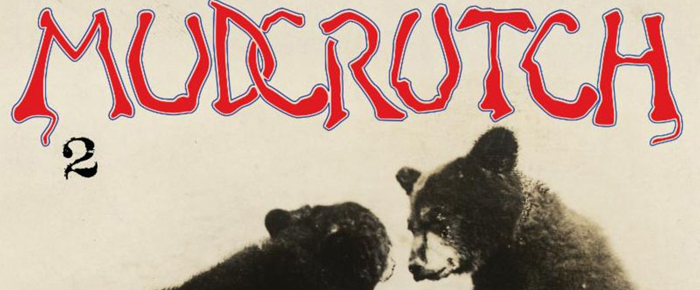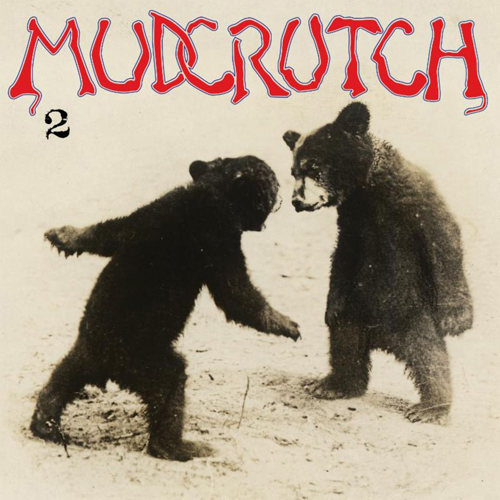
By Eleni P. Austin
In 2007 Tom Petty released a career defining documentary, “Runnin’ Down A Dream,” directed by ‘70s film auteur, Peter Bogdanovich (“Last Picture Show,” “Paper Moon” “What’s Up Doc?”). Clocking in at a little over four hours, it charted Tom Petty’s journey from his Florida childhood, his bar band beginnings and his 30 years fronting Tom Petty & The Heartbreakers. Reminiscing about his early years prompted Tom to reconnect with his pre-Heartbreakers band, Mudcrutch.
Born and raised in Gainsville, Florida, Tom Petty became entranced by Rock N’ Roll at an early age. When he was 10, he met Elvis Presley, (the King was filming “Follow That Dream” near Gainsville, and Tom’s uncle worked on the film crew). Not long after, he traded his Wham-O slingshot for a stack of Elvis 45’s. Watching the Beatles historic performance on Ed Sullivan a couple of years later cemented his ambition. He would make his living as a musician.
Gainsville was a conservative community, but it was also home to the University Of Florida. Tom grew his hair long and started his first band, the Epics. They found a modicum of success at teen dances and college events, covering the popular Rock songs on the charts.
Inspired by the Rolling Stones, Bob Dylan and the Byrds, Tom began writing his own songs and the Epics became Mudcrutch. The nucleus of the band included Tom Leadon on guitar, Randall Marsh on drums, Jim Lenehan on lead vocals, and Tom on bass and vocals. With the addition of guitarist Mike Campbell, the band retreated to a rural farm outside Gainsville to woodshed.
When Jim Lenehan left the band, Tom assumed lead vocal duties. The band persuaded keyboard savant Benmont Tench to join Mudcrutch and that’s when their gritty sound coalesced. The five-piece became the house band at the most popular bar in town, Dub’s Lounge, (occasionally competing with strippers for the customers’ undivided attention). They also held music festivals at Mudcrutch farm, sometimes hosting as many as 1,500 people.
Tom Leadon left the band and headed to Los Angeles, buoyed by the success his brother, Bernie had gained as lead guitarist in the Eagles. He was replaced by bassist Danny Roberts (and later, Charlie Souza replaced Danny). Tom Petty assumed rhythm guitar duties.
After recording a demo, Tom actually headed to Hollywood in search of a record deal. His experience at Playboy Records was unsatisfactory, but fortune smiled on him when he actually found a piece of paper in a phone booth that included phone numbers and addresses for every major record label in town. MGM Records wanted Mudcrutch to cut a single, and London Records (original home to the Rolling Stones) wanted them to make an album.
He returned to Gainsville and the band started planning to relocate to Los Angeles. In the midst of raising cash and packing up for the trip, Tom received a call from Denny Cordell, who had somehow gotten his hands on the Mudcrutch demo. Denny began his career at Island Records and made his bones producing the Moody Blues, Procol Harum and Joe Cocker.
In 1969 Denny Cordell partnered up with Leon Russell to form Shelter Records. Russell had been a studio musician with the infamous Wrecking Crew, playing on records by Gary Lewis & The Playboys and Glen Campbell. He toured with Delaney and Bonnie and was musical director for Joe Cocker’s Mad Dogs And Englishmen tour. His solo career began in 1968.
Shelter Records had offices and studios in Los Angeles and Leon Russell’s hometown, Tulsa, Oklahoma. Even though Mudcrutch had a handshake deal with London, Denny Cordell persuaded the band to stop at the Tulsa studio en route to Los Angeles. Despite a trip that was fraught with automotive mishaps, when the band arrived in the Sooner state, they knew they’d found a home at Shelter Records.
Once they reached L.A. in early 1975, the label rented two houses for the band and they began recording their songs. “Depot Street” was released as a single backed with “Wild Eyes.” Other tracks they took a pass at included “On The Street,” “I Can’t Fight It” and a primitive version of “Don’t Do Me Like That.”
Unfortunately, when the single didn’t perform as expected, Shelter came back to Tom and said his continued deal with Shelter was contingent on him jettisoning the band and going solo. Stuck between a rock and a hard place, he reluctantly acquiesced breaking the news to Randall, Mike and Benmont, (Charlie had already split). It was a bitter blow.
Tom and Mike had begun a successful songwriting partnership, so he made sure Shelter kept them as a package deal. Randall Marsh returned to Florida, but Benmont remained in L.A., reconnecting with two recent Gainsville transplants, Ron Blair and Stan Lynch. Of course, when Tom and Mike started recording what was supposed to be his solo debut, he recruited Benmont, Ron and Stan and Tom Petty and The Heartbreakers were born.
Fast-forward 32 years later and after completing the documentary Tom Petty felt the time was right to get the gang back together. Obviously, Mike and Benmont were close at hand. Tom Leadon had spent several years playing with Linda Ronstadt and was currently living in Nashville, and Randall Marsh had left music completely, living a quiet life in Florida.
It all came together pretty quickly, they recorded a clutch of Petty originals, along with songs by Tom Leadon and Benmont, and included a few knowing covers. Simply titled Mudcrutch, their long-overdue debut arrived in late 2008, entering the Billboard charts at #8. They supported with a few live dates in small (but venerable) clubs like the Troubadour. It was sweet vindication for a band that had seemed like a footnote in Tom Petty’s career.
 Of course, the busman’s holiday had to end, Tom and the Heartbreakers toured endlessly and released their 12th and 13th albums. But as it turns out, Mudcrutch wasn’t just a one-trick-pony. Now they’ve returned with their sophomore effort, Mudcrutch 2, (catchy title, right?).
Of course, the busman’s holiday had to end, Tom and the Heartbreakers toured endlessly and released their 12th and 13th albums. But as it turns out, Mudcrutch wasn’t just a one-trick-pony. Now they’ve returned with their sophomore effort, Mudcrutch 2, (catchy title, right?).
The album kicks into gear with “Trailer.” Astute Heartbreakers fans will recognize it as the same song that was an outtake from the Southern Accents album back in 1985. While the original was a sleek and polished, Mudcrutch’s rendition slows the tempo slightly, stacking “Home-On-Range” harmonica on top of boomerang guitar riffs. The unhurried momentum serves to highlight a poignant story of young love gone awry.
In the Forty years since the Heartbreakers’ self-titled debut, they have always seemed like the quintessential L.A. band. Mudcrutch is another story, you can take the boy out of the South, but you can’t take the South out of the man. Never is that more apparent than on two tracks, “Hope” and “Save Your Water.”
“Hope” feels like a trip in Mr.Peabody’s Way-Back machine to a Gainsville garage, circa 1968. It’s powered by a stompy beat, psychedelic, Hammond B3 swirls and crunchy guitar riffs that spark and pinwheel. Petty’s vocals are yowly and suitably Cro-Magnon, even as he promises to “pay back” the person who showed him “the world ain’t black” and gave him hope.
The sweet-as-molasses ramble of “Save Your Water” nearly camouflages the stinging indictment of Petty’s lyrics. Over liquid arpeggios, bedrock bass lines and a slingshot rhythm, Petty adopts his best Dylanesque sneer as he dismisses a woman who sold him down the river. “Save your water woman, I won’t drink out of your stream.”
While the Heartbreakers function as a benign dictatorship, Mudcrutch is democracy in action. Not unlike their debut, each member gets a turn in the spotlight. Randall Marsh steps from behind the drum kit to sing lead on his angular rocker, “Beautiful World.” Whip-crack percussion and rapid guitar glissandos anchor Marsh’s philosophical musings. “Woke up this morning, I was thinking about it, I was thinking about a life/Yeah the one that we’re livin’ and the one that we’re given and the things that turn out right.”
Tom Leadon’s track, “The Other Side Of The Mountain” is a suped-up Bluegrass breakdown, propelled by sprightly banjo, tinkly piano, locomotive rhythms and a waspish guitar solo. The lyrics paint a vivid picture of missed romantic connections.
Benmont Tench is front and center on the Rockabilly Rave-Up, “Welcome To Hell.” Boogie-Woogie piano runs collide with slapback bass, flick-of-the-wrist guitar and Johnny Cash’s patented boom-chicka-boom rhythms. Benmont’s tongue is planted firmly in cheek as he compares his love life to a fiery abyss of loneliness. “Welcome To Hell, population me, local attraction: the heartbreak sea/The smell in the air of my blooming despair, by the dry wishing well, welcome to hell.”
Finally, Mike Campbell checks in with a musical road trip toward salvation, “Victim Of Circumstance.” If Elvis Costello and the Attractions ever collaborated with the Grateful Dead, it might have sounded something like this. The Country-tinged melody is accented by twisty organ flourishes, a blistering back beat and rollicking guitar licks. It hits the same sweet spot as Chuck Berry’s seminal classic “You Can’t Catch Me.”
The action slows on a couple of tracks, “Beautiful Blue” and “Forgive It All.” The former is slow and sultry, blending ascending piano chords, warm pedal steel and crystalline guitar. Petty is by turns wistful, diffident and lazily seductive. “Gonna move outside the city, I know some friends out there/Hang a tree with painted bottles, watch the sun dance in your hair/I wanna wrap you up in a beautiful blue.” Like a sweet southern drawl, the song envelopes the listener in gauzy instrumentation that offers a plush guitar and piano pas de deux. Benmont’s solo is expansive and eloquent.
On the latter, filigreed acoustic notes are tethered to a languid clip-clop gait and underscored by haunted keys. Tentative, spare and beautiful, Petty effortlessly slips into the skin of a lonesome gunslinger. It’s as meta as he gets, letting go of old grudges and grievances, and possibly addressing his father’s past transgressions in this trenchant couplet; “People are what people make ‘em, and that ain’t gonna change…ain’t nothin’ you can do, nothin’ you can rearrange/I forgive it all, with her I forgive it all.”
“Dreams Of Flying” feels like Petty 101, snake-charmer riffs crest over Hammond B3 colors and a pounding rhythm. The album closes with the more contemplative “Hungry No More.” Dangling like a post-coital cigarette, it offers the big exhale.
Pliant piano runs and Byrdsy, 12 string guitars that jingle-jangle sideswipe a blustery bottleneck solo. Petty’s harmonic bass prowess is on full display here, echoing the game-changing style of Jaco Pastorious. The lyrics are melancholy, yet defiant; seemingly recalling Mudcrutch’s original enforced retirement. “This town broke my heart, and then just carried on like nothing happened at all, like nothing happened at all/And I ain’t gonna be hungry no more.”
With Mudcrutch, Tom Petty has nothing and everything to prove. He’s a Rock And Roll Hall Of Famer who’s played with Byrds, Beatles and Wilburys. It’s a true testament to his integrity that he has been instrumental in shining the spotlight on his original comrades in arms. Mudcrutch 2 debuted at #10 on the charts, proving that sometimes, nice guys finish first.








































